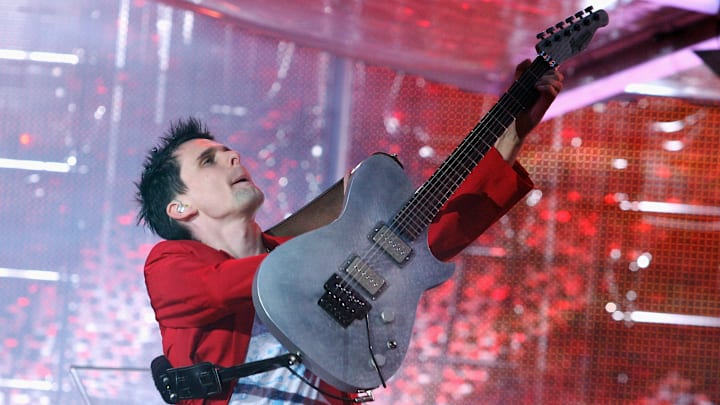Some songs aren’t made. They emerge. They crack through layers of influence and time like something ancient waking up in a machine. "Knights of Cydonia" isn’t just a track—it’s a confrontation. Muse didn’t write it to entertain. They wrote it to unleash something.
The first spark came while crossing the deserts of the American Southwest. Dust, silence, endless space. Matt Bellamy sat on a moving bus, playing a jagged riff over and over—something awkward, unresolved, waiting to transform. That loop became the pulse of a song that would eventually hold the weight of forty years of rock music, compressed into six relentless minutes.
The references are layered, but not accidental. You can hear echoes of spaghetti westerns, a tribute to Ennio Morricone’s ability to summon tension with the flick of a guitar string or the howl of a trumpet.
But Muse doesn’t stop there. They twist that Western flavor through a sci-fi lens—adding synths, mechanical textures, and digital ghosts—until it sounds less like a cowboy and more like a gunslinger from another planet.
Muse created the perfect soundtrack for a space western movie
The intro is eerie, almost alien. It feels like something caught between dimensions, warping and fading in. That’s where the Radiophonic Workshop comes in. In the late ‘50s and ‘60s, this BBC team of sonic explorers pioneered electronic soundscapes with tape machines, reverb, and handmade tones.
Their fingerprints are all over this intro, especially in the distorted ambience that melts into the beat.
There’s also a quieter connection, one that feels personal. Matt’s father, George Bellamy, was part of The Tornadoes, the band that created "Telstar," the first British song to hit No. 1 in the U.S. Listen closely to "Knights of Cydonia," and you’ll hear the resonance—not just in tone, but in intent.
Both songs aim skyward. Both try to say something larger without words. Not to mention that this song, played live, is just an experience out of this world.
It’s a portrait of collapse. Cydonia—the Martian city lost to myth and dust—isn’t just a sci-fi setting. It’s a mirror. A reflection of every civilization that thought it was immortal. The lyrics target power, not a specific figure, but the very idea of leaders who fail their people. The chorus doesn’t beg. It demands: stand up, do not be led, do not kneel before gods that never wake.
Muse crafted a song that spans genres and generations, not to celebrate the past, but to warn us. "Knights of Cydonia" is what happens when memory collides with prophecy. When the mistakes of history are set to music and turned into fuel for resistance. In the end, it isn’t just a song you play.
It’s a future you choose to enjoy.
